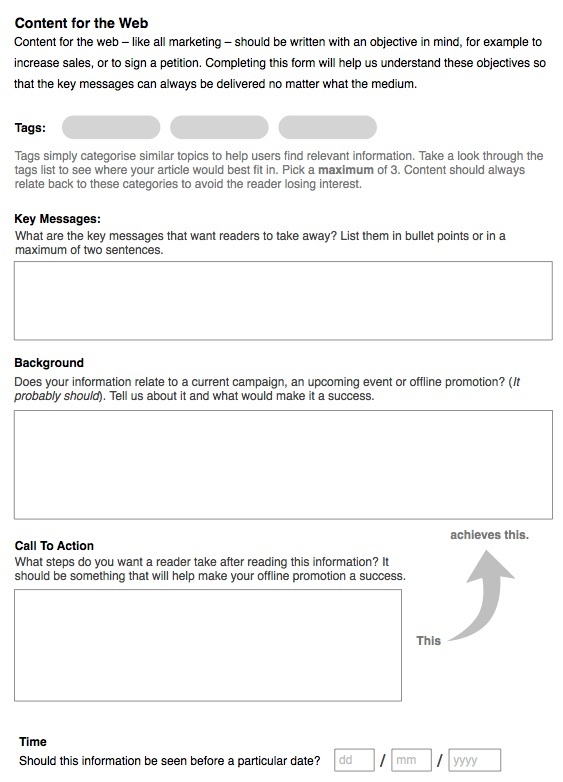Giving Content Context
I used to do a lot of content management in a previous job.
We often received content written by domain experts – not experienced copywriters.
While we did have the capability to edit content, we were pretty busy and we’d have several rounds of communication to ensure edits didn’t miss key points. We also wanted authors to think not about their own interests, but about the benefit to our audience.
There’s a well known saying about what you can and can’t polish, so based on that advice I created a template for authors to fill out alongside their content:
This template helped our authors give us – and them – some context to what they were writing about.
Retaining Interest
To focus the minds of our authors we first hit them with a maximum of three tags their content could appear under. We hoped this would help the keep the article focused around those areas, rather than trying to cram everthing in.
Key Message
We asked for the key message in either a few bullet points, or two sentences at the most, to try to strip it back to its simplest form. This made it easier for our editors, and of course, compressed it in to something we could fit in 140 characters.
Background
Rarely did we recieve content which was a single purpose piece for the main website. There is almost always something happening offline, whether it be a campaign, fayre or club night. We asked for background information on this, and what success meant for the event. That way we could make sure our content was focused on the same success criteria as the offline event.
Call to Action
Surprisingly, lots of content was sent to us with no real indication of what the author would like the reader to do after they’d read the content. We asked for specifics, and used a visual cue to explain that their call to action should help to achieve the goal of their campaign.
Publication Date
More often than not, when asked when an auther needed their content published by, they’d say ASAP. Of course, what they meant was that they wanted to get as much publicity for their event or article series as they could. We found that it was better to ask when their content would no longer be relelvent. This put the scheduling back in our hands and help us release articles when we knew the audience would be active.
Download
Download the template – hope it helps!
